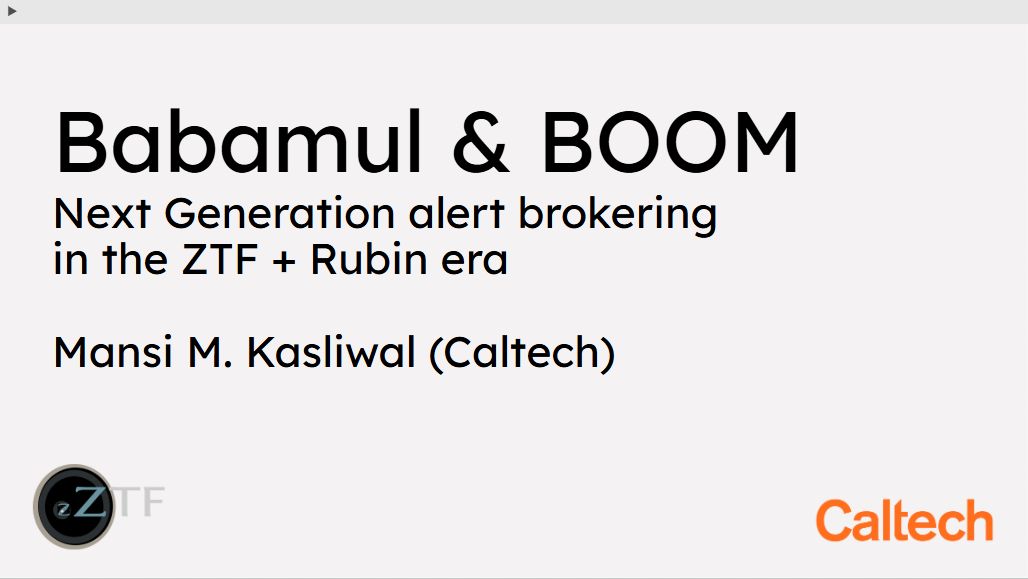Babamul
You are here : Home / Survey & Data / Babamul
Babamul & BOOM
Babamul
Babamul is one of the seven "full-stream" brokers receiving and processing the full LSST alert stream.
Babamul is an open-source, lightweight, easily deployable broker that will initially deliver a low latency stream of Rubin alerts that match with ZTF objects. In the future, we aim to upgrade Babamul to transforms the massive and heterogenous LSST data stream into channels organized by astronomical event properties (e.g. fast, blue, ...) therefore dramatically reducing the data volumes. As such, astronomers can subscribe only to events relevant to their research and filter them further using minimal hardware and familiar tools (e.g. astropy, numpy, astroquery) while also allowing for fast and local ML-based workflows. Babamul also offers a number of open-sourced modules, ML models, example pipelines, and data management systems (with candidate vetting and follow-up UIs).
The unique strength of Babamul is its underlying architechture, or BOOM which allows for continuous crossmatch of ZTF and Rubin alert streams and the use of the combined lightcurves at filtering times.
BOOM
BOOM stands for Bursts and Outbursts Observation Monitor and it refers to the underlying hardware and software infrastructure that enables a full blown science data platform for transient astronomy. BOOM features:
♦ A multi-survey data archive and alert broker (Babamul) combining data from the ZTF and Rubin alert stream to offer
users combined
lightcurve infomation at filtering times.
♦ An interactive collaborative marshal for the transient, variable, and solar system science cases
♦ Enriched data via multimodal ML models
♦ High throughput as BOOM is built from scratch with the Rust programming language, with tier-like system of workers for
maximum scalability. It relies on Valkey as an in-memory job queue, and on MongoDB as its database for it's built-in spatial
querying features
♦ 100% customizable filters by the end user.
BOOM and Babamul are jointly developed by Caltech and our ZTF partners at UMN ( Coughlin's group). The AI/ML capabilities of Babamul are enabled by AppleCiDEr. The source code and documentation are open source and hosted on Github.

